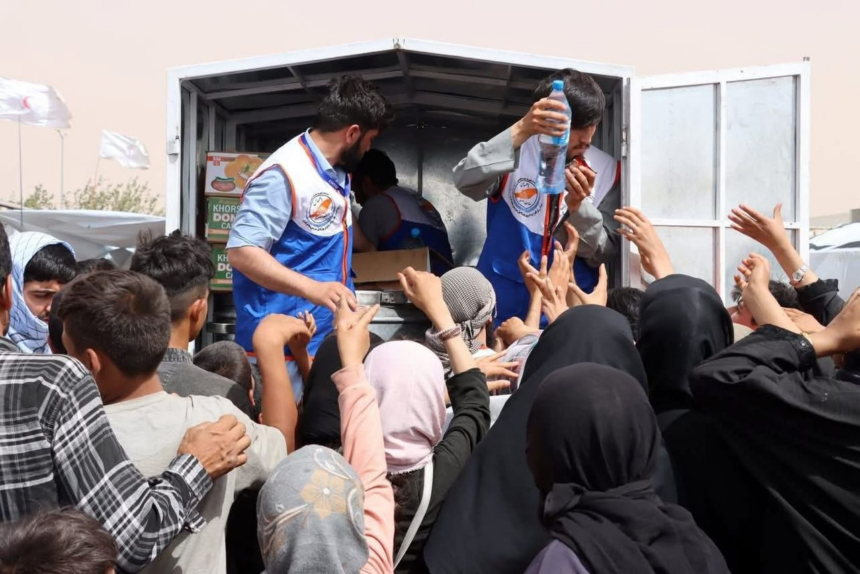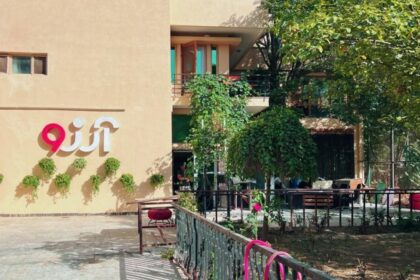RASC News Agency: In yet another grim example of the Taliban’s manipulation of humanitarian aid, new reports from Herat province reveal that local Taliban authorities have been imposing “ushr” (religious tithe) and additional levies on charitable donations collected for Afghanistani returnees. This revelation comes despite the Taliban’s recent claims of spending over two billion Kabuli rupees in the past month to support those forcibly repatriated from Iran and Pakistan. The practice has ignited widespread outrage among Afghanistani citizens, philanthropists, and civil society activists, who accuse the regime of turning relief efforts into a profit-making enterprise.
Ahmadullah Wasiq, a senior Taliban official overseeing refugee affairs, boasted on his social media platform that the group allegedly provides 2,000 Kabuli rupees per family per day, amounting to a staggering 30 million rupees daily. He further claimed that these contributions cover essential services such as food, transportation, medical care, and registration for returnees. However, independent observers and local sources have confirmed that much of this narrative is fabricated or exaggerated, and the actual burden of aid continues to fall on international donors and private charitable organizations.
Contrary to the Taliban’s official claims, residents of Herat report that Taliban commanders have systematically siphoned off portions of both cash and in-kind donations collected by local communities for these vulnerable returnees. These seizurescjustified under the pretext of “religious rights” such as ushr and zakat have undermined public trust in the entire humanitarian chain, discouraging merchants, farmers, and philanthropists from contributing further. Eyewitnesses confirm that even aid convoys are being intercepted at Taliban checkpoints near border areas and migrant camps. Trucks carrying food, medical supplies, and blankets are often delayed or partially looted, with the Taliban demanding a “tax” before allowing distribution to needy families. Such practices not only obstruct life-saving aid but also expose the regime’s willingness to exploit the most desperate, including women and children, for financial and political gain.
Independent humanitarian monitors have further revealed that the daily cash assistance of 2,000 kabuli rupees per family is not sourced from the Taliban’s coffers. Instead, this funding originates from the United Nations and other international donors, yet the Taliban aggressively publicize these efforts as their own, attempting to portray themselves as benevolent rulers. This propaganda is seen as part of a broader effort to mask the regime’s incompetence and corruption while siphoning off both domestic and international contributions. Previous reports from Pul-e Abrisham border crossing in Nimroz province highlighted similar abuses, with sections of a Chinese-funded relief project intended to build temporary shelters for Afghanistani returnees being misappropriated by Taliban officials within the Disaster Management Authority. Such incidents illustrate a consistent pattern of corruption, where humanitarian aid becomes a tool for financial enrichment and regime propaganda rather than genuine relief.
While Taliban officials continue to tout their supposed commitment to supporting returnees, ground realities at western border points, particularly Islam Qala and Pul-e Abrisham, tell a far darker story. International aid organizations have documented scenes of thousands of deported Afghanistani families sleeping in the open, without shelter, potable water, or basic medical care. Children, some visibly malnourished, are suffering from preventable illnesses due to the absence of food, sanitation, and adequate health facilities. The United Nations has warned that nearly two million Afghanistani returnees were forcibly expelled from neighboring countries in just the first half of 2025 with more than 1.5 million from Iran and over 300,000 from Pakistan. The majority of these individuals return to a country where they have no homes, no jobs, and no support networks, leaving them at the mercy of a regime more interested in consolidating power than protecting its citizens. Women, children, minority communities, and civil society activists remain the most vulnerable and marginalized under Taliban rule.
Despite mounting evidence of extortion, seizure of aid supplies, and local-level corruption, the Taliban continue to issue calls for charities, business leaders, and local donors to “partner” with them in relief efforts. However, these appeals ring hollow in light of persistent reports that the group’s officials pocket a share of any aid passing through their checkpoints or bureaucratic structures. Trust in the Taliban’s ability to manage humanitarian crises has virtually collapsed, with many organizations now wary of providing assistance that risks being diverted or misused.






